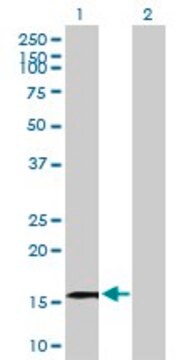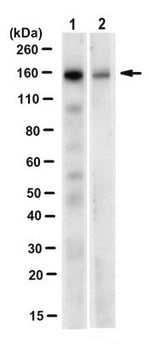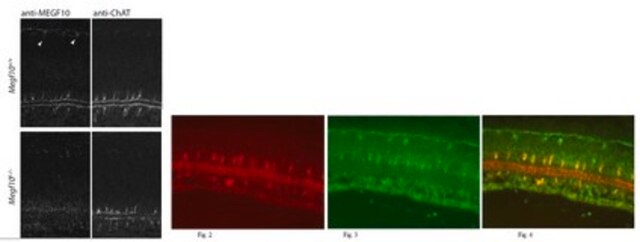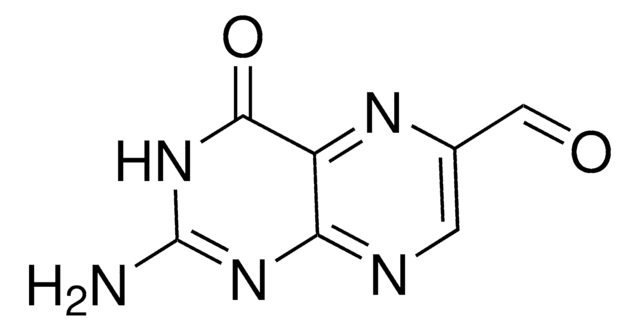AB1592P
Anti-NMDAR2C Antibody, also recognizes NMDAR2A and 2B
Chemicon®, from rabbit
About This Item
Produits recommandés
Source biologique
rabbit
Niveau de qualité
Forme d'anticorps
affinity purified immunoglobulin
Type de produit anticorps
primary antibodies
Clone
polyclonal
Produit purifié par
affinity chromatography
Espèces réactives
rat
Fabricant/nom de marque
Chemicon®
Technique(s)
immunoprecipitation (IP): suitable
western blot: suitable
Adéquation
not suitable for immunohistochemistry
Numéro d'accès NCBI
Numéro d'accès UniProt
Conditions d'expédition
dry ice
Modification post-traductionnelle de la cible
unmodified
Informations sur le gène
human ... GRIN2C(2905)
Spécificité
Immunogène
Application
Neuroscience
Neurotransmitters & Receptors
Immunoprecipitation: 3 μL will (under the appropriate conditions) quantitatively immunoprecipitate all NMDAR2C in 200 μg of rat cerebellum.
Not recommended for use in immunohistochemistry since the antibody also reacts with NMDAR2A and NMDAR2B.
Optimal working dilutions must be determined by the end user.
Forme physique
Stockage et stabilité
Avoid repeated freeze/thaw cycles.
Informations légales
Clause de non-responsabilité
Vous ne trouvez pas le bon produit ?
Essayez notre Outil de sélection de produits.
Code de la classe de stockage
11 - Combustible Solids
Classe de danger pour l'eau (WGK)
WGK 1
Certificats d'analyse (COA)
Recherchez un Certificats d'analyse (COA) en saisissant le numéro de lot du produit. Les numéros de lot figurent sur l'étiquette du produit après les mots "Lot" ou "Batch".
Déjà en possession de ce produit ?
Retrouvez la documentation relative aux produits que vous avez récemment achetés dans la Bibliothèque de documents.
Notre équipe de scientifiques dispose d'une expérience dans tous les secteurs de la recherche, notamment en sciences de la vie, science des matériaux, synthèse chimique, chromatographie, analyse et dans de nombreux autres domaines..
Contacter notre Service technique








